The president’s decree about Muslims entering the United States is frightening, including particularly for what it tells us about a young presidency and how the office intends to use its power in its flurry of seemingly manic energy and activity, writes Shadi Hamid. This piece originally appeared in the Washington Post.
There is panic at the airport. Some of the stories, after President Trump issued his executive order targeting Muslim immigrants, remind me of what I saw in the Middle East. No one has been killed, of course. But when an Iraqi who risked his life an interpreter for the Army arrives in New York only to be denied entry, it has the hallmarks of a different world, one he probably thought he had left behind: the fear of not knowing; the manipulation of law; the capriciousness of strongmen in midflight; and families divided in the name of politics.
The executive order may, in fact, be illegal, causing considerable confusion over what it means for the hundreds of thousands of legal U.S. residents from the seven Muslim countries listed. The legal debate and challenges will probably be with us for some time, maybe for the long remainder of Trump’s tenure. The president’s decree, though, is just as frightening—perhaps even more so—for what it tells us about a young presidency and how the office intends to use its power in its flurry of seemingly manic energy and activity.
With several notable exceptions, such as Defense Secretary James Mattis, a worryingly large number of Trump advisers and appointees share what, at best, can be described as a suspicion of not just Islam but Muslims. The executive order underscores the new administration’s fixation on what it views not as a terrorist threat but a civilizational one in which the very act of being Muslim is grounds for scrutiny.
The president’s order prioritizes “refugee claims made by individuals on the basis of religious-based persecution,” which is understandable enough, because Muslims and Christians alike (and Muslims more so) are targets of groups like the Islamic State.
One clause, however, imposes a religious test, almost overwhelming in its starkness: “The religion of the individual [must be] a minority religion in the individual’s country of nationality.” In other words, they cannot be Muslim regardless of the level of persecution they face. As Reza Aslan, an author who is Muslim, writes: “A Christian fleeing discrimination in Yemen would be given entry, but a Shia facing death and starvation would not.”
Islam, at least to some in Trump’s inner circle, is not considered a religion. As national security adviser Michael Flynn has said: “Islam is a political ideology masked behind a religion, using religion as an advantage against us. Islam is a political ideology. Sharia, the law of Islam, OK? Sharia is the law. Just like our Constitution is our law.” Since Muslims wouldn’t know how to pray, fast or give charity (zakat) without “sharia,” then any Muslim who observes any aspect of their faith or partakes in any ritual might have dual loyalties, to the clashing legal traditions of Flynn’s imagination.
Trump’s early moves are not just an attack on some of the most vulnerable refugees, but on Islam as an overarching ideological threat. It is easy to see echoes of Trump surrogate and former House speaker Newt Gingrich’s July remarks, which at the time may have seemed like musings of a man who would never again be close to the centers of American power.
“We should frankly test every person here who is of a Muslim background, and if they believe in sharia, they should be deported,” Gingrich said. It wasn’t clear whether Gingrich had in mind citizens and noncitizens alike or just the latter, but even the most charitable reading was sufficiently ominous.
I did not come of political age during the Cold War, so perhaps the language of ideological tests shouldn’t be as surprising as I found it while parsing the text of the executive order.
This is noteworthy: “The United States cannot, and should not, admit those who do not support the Constitution, or those who would place violent ideologies over American law.” What constitutes “supporting” the Constitution, especially considering that our own president has an ambivalent relationship with many of its amendments, including the first? How is that to be judged?
Ideological tests are something that American Muslims, including my family and I, are safe from. But I shudder to think that my parents, upon entering the United States as immigrants decades ago, would have been “tested” for sufficient adherence to the Constitution by an administration that already held them in suspicion. Would they have been asked to disavow aspects of their own religion, culture or identity?
Trump’s actions didn’t just begin with his presidency. They began when Trump, the candidate, propelled Muslims to the center of his agenda. For the first time, in my own country, I felt like an object of analysis.
I remember when Trump first proposed his Muslim immigration ban in December 2015 and hearing it discussed endlessly on television. Everything seemed to be about “us.”
I was no longer just who I happened to be but a member of a group that was being debated and dissected as a potential threat. We had become a problem, and all problems need to be resolved. In the coming four or eight years or perhaps longer, we will find out what, exactly, that means.
The Brookings Institution is committed to quality, independence, and impact.
We are supported by a diverse array of funders. In line with our values and policies, each Brookings publication represents the sole views of its author(s).

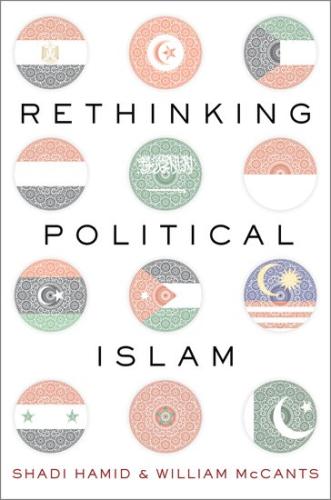
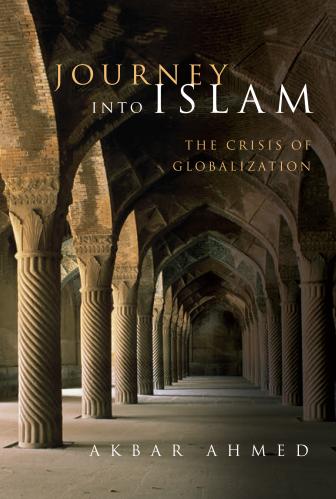
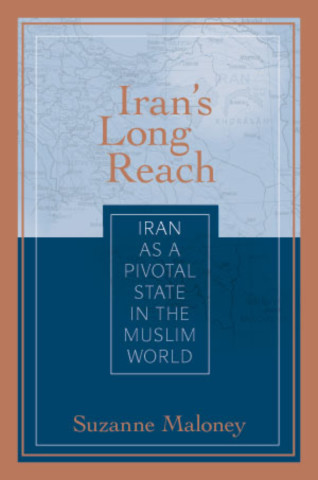
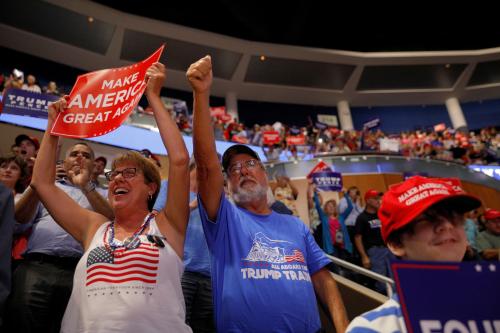
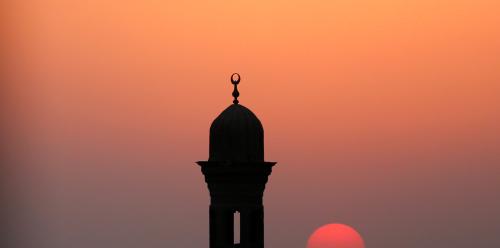





Commentary
The dangerous questions Muslims are facing
January 31, 2017